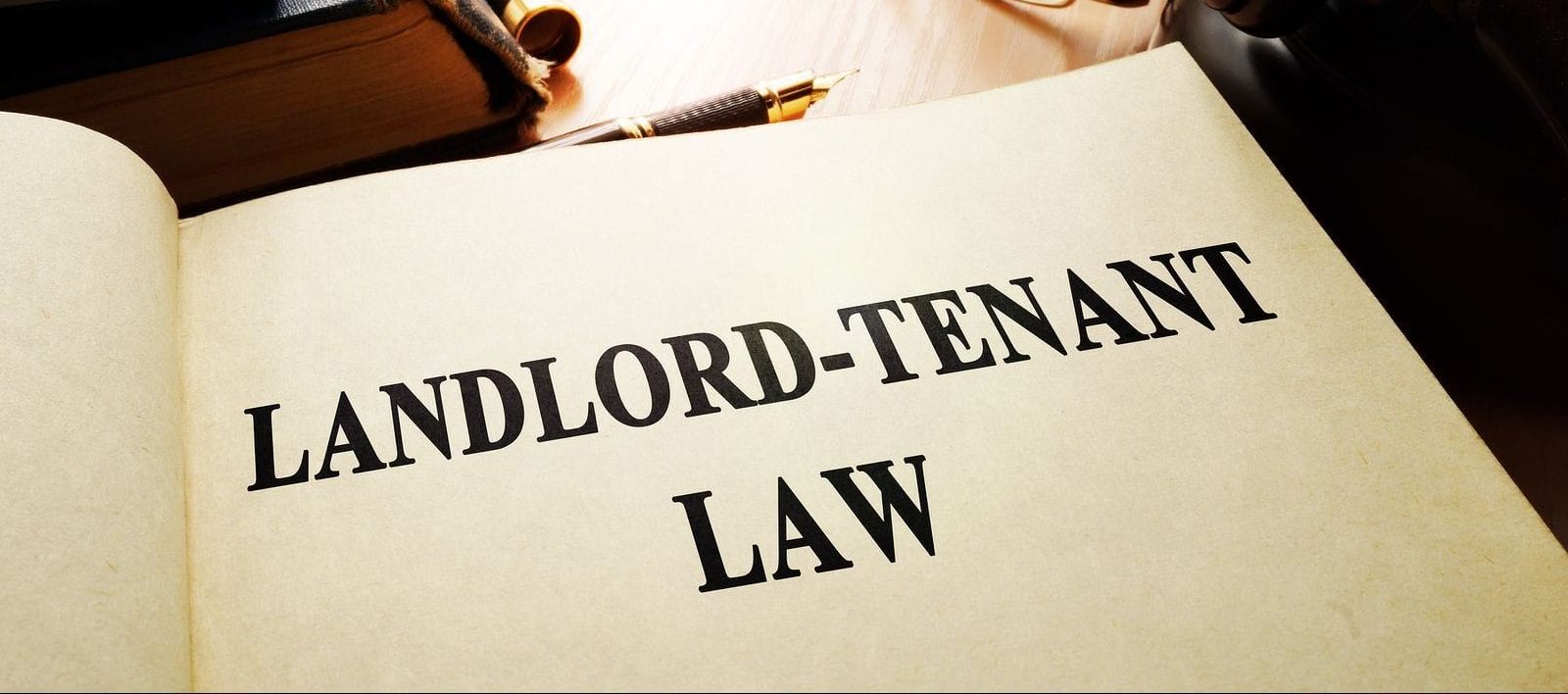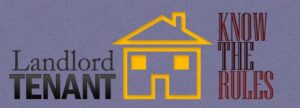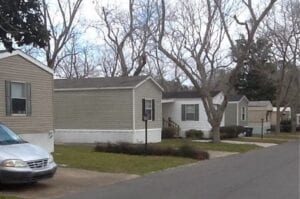Oregon Landlord-Tenant Law Handbook

Are you searching for information on Oregon Landlord-Tenant law handbook? If so, you’ve come to the right place!
Knowing the landlord-tenant laws in Oregon is important for both owners and tenants because an understanding of the laws will help tenants to know their rights and a complete understanding of the laws will help landlords to avoid lawsuits.
In this article we will provide you with a breakdown of landlord-tenant laws in Oregon.
Oregon Landlord-Tenant Law Handbook
Rights And Duties Of Tenants
When you rent a house or an apartment, you enter into a legal contract with someone. With this contract begins what is known as a landlord-tenant relationship. As a tenant, you have certain rights and responsibilities. First of all, you have the right of exclusive possession, which means that even though the landlord owns the property, you generally have the right to your privacy. No one may invade your “home” without legal authority. As such, your landlord must give you at least 24 hours notice before entering the property unless there is an emergency, unless you have requested repairs or maintenance (without designating certain dates and times), or unless the contract permits the landlord to enter the grounds (but not the dwelling unit) for yard maintenance.
Your landlord may enter the property after advance notice in order to make inspections, make necessary repairs, supply necessary services, or to show the property to prospective buyers or work people. If reasonable, you may deny your landlord permission to enter; however, you must act reasonably. Just as the landlord cannot abuse the right of access to harass you or enter at unreasonable times, you cannot withhold your permission to enter to hinder or interfere with the landlord’s exercise of his or her rights and responsibilities.’
Oregon Landlord-Tenant Law Handbook – Rights And Duties Of Landlords
When you rent a house or apartment to another person, you enter into a legal contract known as a landlord-tenant relationship. This contract has certain basic conditions set by law that you should understand before you enter into this type of agreement.
As a landlord, you have the right to receive rent for the use of your property. You also have the right to have your property returned to you undamaged at the end of the rental agreement. It should be returned in the same condition it was received, except for normal wear and tear. In exchange for these rights, it is your responsibility to provide a home that is habitable and to make repairs when needed. You must also equip the residence with a properly working smoke detector and provide the initial set of batteries if it is battery operated.
It is your duty as a landlord to respect your tenant’s rights. These rights include the right of peaceful possession. By renting your property to the tenant, you give that tenant the possession and use of your property free from interference. That means that you may not enter frequently, at odd hours, without a legitimate reason, or without notice. You typically have the right to protect your property through reasonable inspection to make repairs and to show the property to possible buyers. You must give at least 24 hours notice of your intent to enter unless the tenant has asked in writing for repairs within the last seven days or there is an emergency.
Illegal Housing Discrimination
You may be protected by federal, state or local laws that shelter certain categories of people from being discriminated against when it comes to renting, buying or financing a home. Federal law protects you from being discriminated against for your race, color, national origin, religion, sex, family status and physical and mental disability. The Oregon Landlord-Tenant Law Handbook also forbids these kinds of discrimination. In addition, Oregon law forbids discrimination based on your marital status, sexual orientation, the source of your income, the fact that you are a victim of domestic violence, sexual assault or stalking, or the fact that you have won an eviction case brought by a former landlord. Some cities in Oregon protect people from discrimination on such grounds as age and type of occupation. You should check with your city or county to find out if it offers additional protections against discrimination in housing.
To qualify for protection from discrimination based on a disability, you would have to have an impairment that substantially limits a major life activity, such as eating, dressing, bathing, walking, standing, working and so on. You would not qualify as being disabled if your disability is that you currently use an illegal drug.
“Family status” laws protect families with children – women who are pregnant, guardians of children, and those who are in the process of getting custody of children, such as by adoption.
State law also makes clear that housing discrimination is unlawful whether it is deliberate and intentional or has the effect – intentional or not – of having a greater or ‘disparate’ impact on people who are in a protected group.
Rights of a Mobile Home Owner Threatened With Eviction From a Mobile Home Park
The following information regarding manufactured and mobile home parks is general legal information. You may review the statutes involved at Oregon Revised Statutes Chapter 90, especially sections 90.505 to 90.840. The primary eviction statute for park tenancies is at ORS 90.630. Note that the rules for owners of floating homes renting a moorage in a marina are very similar, except with regard to closure of the marina.
If you own a manufactured or mobile home and simply rent space in a mobile home park, you have certain rights when a landlord wants to evict you. These rights are different from those of mobile home owners who do not live in a mobile home park. They also differ from those of persons who rent both the space and the mobile home. If you rent both, you are treated as if you are an apartment tenant. The primary difference between apartment tenants and mobile home park tenants is that apartment tenants can be evicted without a good cause. (See information on Eviction Notices, Evictions and Residential Eviction Defenses.)
A mobile home park may also be called a manufactured dwelling park. A mobile home park generally contains four or more spaces reserved for renting to owners of mobile homes. (Please note that this does not apply to owners of motorized campers or recreational vehicles.) The spaces sit on a parcel of land and are typically placed within 500 feet of each other. The Oregon Landlord-Tenant Law Handbook stats that spaces on this parcel of land are owned by the same owner or owners, who must intend to use the land to rent the space for a fee or other compensation.
Rent Increases for Different Types of Tenancies
Most tenants in Oregon have month-to-month rental agreements. In this type of tenancy, tenants pay rent once a month and the rental agreement continues until either the tenant or the landlord decides to end it. In a month-to-month tenancy, rent cannot be increased during the first year after the tenancy begins. At any time after the first year of tenancy, rent can be increased only with a written notice delivered to the tenant at least 90 days prior to the effective date of the rent increase.
The other common type of tenancy is a fixed-term tenancy for a definite amount of time. A rental agreement for a fixed-term is called a lease. Usually, a lease will state the amount of rent the tenant must pay while the lease is in effect. A lease may also list a method for increasing rent during the term. If the lease does not specify a method for increasing the rent, no change in the rent can be made during the fixed term of the lease. And, as with month-to-month tenancies, rent cannot be increased during the first year of a fixed-term tenancy. After the first year of the tenancy, rent can only be increased as specified in the lease, and with at least 90 days’ written notice prior to the effective date of the rent increase. If the fixed term expires, but neither party renews it and the tenant does not move out, then the lease converts to a month-to-month tenancy and rent can be increased thereafter with a 90-day written notice (after the first year of tenancy).
Reasonable Rules in Mobile Home Parks and Floating Home Facilities
A landlord of a mobile home park (also called a manufactured dwelling park) or floating home marina must have written rules and regulations about how tenants use the rented space and park or marina facilities, and they must be attached to the Statement of Policy given to tenants when they move in. According to the Oregon Landlord-Tenant Law Handbook, rules and regulations are considered to be a part of the rental agreement (which also must be in writing). These rules and regulations do not need to be the same for all tenants at all times, so long as the rules are applied fairly. Your landlord may enforce a rule or regulation only if it promotes the convenience, safety or welfare of the tenants; protects the landlord’s property from abusive use; or helps all tenants have fair use of shared services and facilities. The rule or regulation must also meet all of the following criteria:
- The rule must be reasonably related to the purpose for which it is adopted, and it must be reasonably applied.
- The rule must be clear enough to inform the tenant fairly of what he or she must do or not do.
- The landlord may not impose the rule in order to avoid the landlord’s obligations under the law.
These criteria allow your landlord some leeway in making and enforcing rules differently for different tenants. For example, a landlord can have different rules for new tenants who move into the facility. The old rules might allow woodpiles in the carport for existing tenants, while the new rules for new tenants do not. In addition, state and federal anti-discrimination laws require landlords to make reasonable accommodations to rules to afford tenants with disabilities an equal opportunity to use and enjoy their dwelling, so, for example, your landlord might allow a tenant who uses a wheelchair to have special parking privileges.
Landlord Rules in Conventional Rental Housing
Note: This topic will cover rules for landlords in conventional rental housing — not housing in a mobile home park or floating home facility. For information about those facilities, please read Reasonable Rules in Mobile Home Parks and Floating Home Facilities.
A landlord under Oregon’s landlord-tenant law can have rules or regulations about how tenants use and occupy the premises. Premises means the actual dwelling unit a tenant rents, the structure of that unit, and the grounds, areas and facilities for the general use of tenants. A landlord might have rules that regulate the use of parking spaces and establish laundry room operating hours. A landlord might also establish rules about noise levels at different hours of the day, or rules about owning pets. A landlord of subsidized housing may face more restrictions when it comes to setting rules.
For a landlord to legally enforce rules or regulations, the following conditions must be met:
- The proposed rule must be created to promote the safety and welfare of the tenants, to preserve the property from abusive use, or to fairly provide services and facilities for the general use of all tenants.
- The rule must be reasonably related to the purpose for which it’s adopted.
- The rule must be written clearly enough for the tenant to understand what he or she must do or must not do.
- The rule must apply to all tenants in a fair manner.
- A rule cannot be created in order to avoid a landlord’s obligations under the law.
- Finally, the tenant must get written notice of the rules at the time he or she signs the rental agreement, or when the rules are adopted.
Residential Evictions
This information applies to residential tenancies. The only way a landlord can evict a tenant is by using a court proceeding for eviction. A landlord cannot legally evict a tenant by changing locks, stopping utility services, taking a tenant’s belongings, or by threat or the use of force.
To start an eviction case a landlord must give a tenant written notice. One possible type of notice is a “no-cause notice,” which means the landlord does not give a reason for the tenant to vacate. This type of notice is not available if a tenant is in the middle of a fixed-term tenancy. A fixed-term tenancy is for a set period of time, agreed upon by both tenant and landlord. Therefore, neither side can simply terminate the tenancy for no reason; otherwise, there could be financial consequences. The only valid no-cause notice applies when the tenant is in a month-to-month tenancy, and the tenant has not occupied the premises for more than one year. (This is further explained in the Residential Eviction Notices topic.)
In the Oregon Landlord-Tenant Law Handbook, other notices include certain types of 90-day notices that apply in limited circumstances, 30-day notices for cause (alleged wrongdoing committed by the tenant), 72-hour or 144-hour notices for nonpayment of rent, and 24-hour notices for outrageous or dangerous conduct. If the tenant still occupies the rental after the end of the period stated in the notice, the landlord can then file an eviction complaint in court.
The court proceeding is quite speedy; its main purpose is to determine whether the tenant has the legal right to keep living in the rental when the landlord wants the tenant to move.
Residential Eviction Defenses
A residential landlord cannot terminate a rental agreement with a tenant without the tenant’s agreement, unless the landlord takes the tenant to court and gets a court order. This legal proceeding is called an eviction case. Assuming you are the tenant, during the trial, you can present the court with reasons you should not have to move. These reasons are called defenses. If your defense is successful, you will be able to stay in the home.
Oregon law requires the landlord to comply with the legal requirements for termination notices. These requirements are stated in the notice. If the eviction notice is wrong, or has not been given to you as required by law, this is a defense that you can rely on in court. (Specific requirements for eviction notices are discussed in the related Residential Eviction Notices topic.)
Other defenses depend on the reason for the landlord’s notice of termination. Note that special rules apply to some kinds of housing for people in rehabilitation from drug and alcohol abuse. For these rules to apply, the landlord must be either a housing authority or a nonprofit agency.
Your defense may be that you simply did not do what your landlord is complaining about. Another defense may be that your actions did not violate the rental agreement or did not affect health or safety. Another possible defense is that the landlord’s attempt to evict you is based on the landlord’s enforcement of an unreasonable rule. The previous are examples of common defenses, there are many more.
Finally, you may try to prove that you corrected the landlord’s complaint, by making repairs, paying for damages, or some other way.
Residential Evictions
This information applies to residential tenancies. The only way a landlord can evict a tenant is by using a court proceeding for eviction. A landlord cannot legally evict a tenant by changing locks, stopping utility services, taking a tenant’s belongings, or by threat or the use of force.
To start an eviction case a landlord must give a tenant written notice. One possible type of notice is a “no-cause notice,” which means the landlord does not give a reason for the tenant to vacate. This type of notice is not available if a tenant is in the middle of a fixed-term tenancy. A fixed-term tenancy is for a set period of time, agreed upon by both tenant and landlord. Therefore, neither side can simply terminate the tenancy for no reason; otherwise, there could be financial consequences. In the Oregon Landlord-Tenant Law Handbook, the only valid no-cause notice applies when the tenant is in a month-to-month tenancy, and the tenant has not occupied the premises for more than one year. (This is further explained in the Residential Eviction Notices topic.)
Other notices include certain types of 90-day notices that apply in limited circumstances, 30-day notices for cause (alleged wrongdoing committed by the tenant), 72-hour or 144-hour notices for nonpayment of rent, and 24-hour notices for outrageous or dangerous conduct. If the tenant still occupies the rental after the end of the period stated in the notice, the landlord can then file an eviction complaint in court.
The court proceeding is quite speedy; its main purpose is to determine whether the tenant has the legal right to keep living in the rental when the landlord wants the tenant to move.
In the Oregon Landlord-Tenant Law Handbook, to file an eviction case, the landlord must complete a complaint form, which is available from the court clerk. The landlord must give the clerk a copy of the eviction notice and pay a filing fee. If the landlord cannot afford the filing fee, he or she may ask the court to waive or postpone payment of the fee. Most court clerks have a form for this purpose.
Getting Repairs Made
Most residential rental units will need to be repaired at one time or another. There are two ways a landlord is most likely to learn about the need for repairs. One is through the landlord’s inspection of the rental. The other is by a report from the tenant.
Some problems start small but can cause significant damage over time. You should tell your landlord immediately if a repair is needed. You do not have to give your landlord written notice, but it is a good idea. (Written notice is required only if you notice the smoke detector doesn’t work). Always keep a copy of any notice you give to your landlord.
Most landlords want to make repairs quickly to minimize the costs of maintenance and to comply with their legal duties. For more information on habitability requirements read Habitability.
However, some landlords refuse to make repairs within a reasonable time. Other landlords will hire unqualified workers who do not correct the problem. In situations like these, you have several options.
One option is to give a written 30-day notice to your landlord saying you will move out unless the landlord makes needed repairs within a certain time period. In a month-to-month tenancy, that time period is 7 days for essential services such as water, plumbing and heat, and 30 days for all other kinds of repairs. In a week-to-week tenancy, your notice must give the landlord 7 days to repair the problem. The notice period starts when the landlord receives the notice. The notice can be delivered in person or sent by regular first class mail. If the lack of an essential service seriously and immediately threatens your health or safety, you can shorten the notice to 48 hours.
When Tenants Leave Belongings Behind
If you are a residential landlord, you may not take or keep any of a tenant’s belongings until the rental agreement has ended. If you wrongfully take a tenant’s personal belongings while the tenant is still legally renting from you, you may be liable for damages and your actions may relieve the tenant of liability for unpaid rent or other kinds of claims you might have. After a rental agreement has ended, however, you have the right to dispose of a tenant’s abandoned personal belongings, but only after following very specific rules.
If you are a residential landlord, you cannot take or keep any of a tenant’s belongings until the rental agreement has ended. If you wrongfully take a tenant’s personal belongings while the tenant is still legally renting from you, you may be liable for damages and your actions may relieve the tenant of liability for unpaid rent or other kinds of claims you might have. After a rental agreement has ended, however, you have the right to dispose of a tenant’s abandoned personal belongings, but only after following very specific rules.
It is not always easy to determine when a tenancy has terminated and the tenant has abandoned his or her personal belongings. Under Oregon law, a tenant’s belongings are considered abandoned in one of three ways.
The first way in the Oregon Landlord-Tenant Law Handbook is when the tenancy ends without court action. The tenancy can end (1) with a tenancy termination notice, (2) when the rental agreement term expires, or (3) when the tenant relinquishes or abandons the rental property (which can also be when the only tenant dies). In all three circumstances, the landlord must determine whether the tenant has, in fact, vacated the rental premises. If so, the landlord must then determine whether it reasonably appears under all the circumstances that the tenant has left personal property on the premises with no intention of asserting any further claim to the premises or to the personal property.
The second way a tenant’s personal belongings are considered abandoned is when the tenant has been gone from the rental unit continuously for at least 7 days after a court has ordered an eviction of the tenant, even though the sheriff’s department has not executed the court order or judgment.
Tenants in Foreclosed Housing
Tenants have protections during and after judicial and non-judicial foreclosure of a rental home. The Protecting Tenants at Foreclosure Act of 2009 was restored and became effective on June 23, 2018. The law protects tenants from immediate eviction by persons or entities that become owners of residential property through the judicial or non-judicial process, and extends additional protections for tenants with U.S. Department of Housing and Urban Development Section 8 vouchers.
What protections does the law provide tenants during foreclosure of the rental home?
- Notice of pending foreclosure actionIn non-judicial foreclosure proceedings, state law requires that a tenant living in a home or apartment that is being foreclosed be notified at least 120 days before the foreclosure sale date. ORS 86.774 (1)(a). The notice must contain certain information about tenants’ rights during and after foreclosure. ORS 86.771. There is no similar specific notice requirement for tenants regarding a judicial foreclosure action; however, 28 days’ notice of a judicial foreclosure sale must be provided to any person with an interest in the property. ORS 18.924.
- Landlord-tenant law applies during the foreclosureDuring any foreclosure proceeding, landlord-tenant law still applies. The tenant must continue to pay rent, in most cases to the original landlord. In some cases, the home loan agreement gives the lender the right to collect rent from the tenants if the landlord misses mortgage payments.
Special rules on security deposits and prepaid rent
When a property is in foreclosure, the tenant has the right to apply any security deposit or prepaid rent towards current or future rent. ORS 90.367 (1). The tenant must notify the landlord in writing when doing this. If the landlord later provides written evidence that the property is no longer in foreclosure, the landlord may require restoration of the security deposit or prepaid rent after providing the tenant with at least two months’ notice. ORS 90.367 (5).
Tenant Privacy and Landlord Access
As a tenant, you are entitled to exclusive possession to your rental unit, which means that you have the right to privacy. However, Oregon law also says that landlords have a strict duty to rent only units that are “habitable” — or in a safe, sanitary and functioning condition. Landlords must make repairs when a rental unit becomes uninhabitable or otherwise needs repairs. To make these repairs, your landlord may enter your home with the appropriate contractor or repair person. Landlords also have the right to inspect your home from time to time to ensure that the apartment is in sound condition. Finally, landlords also have the right to sell the rental property or rent the property to others. To that end, under certain conditions landlords may allow potential tenants or buyers to inspect the property.
To help balance a tenant’s right of privacy with a landlord’s duties and rights, there are rules about when and how landlords can enter your unit. Generally speaking, a landlord must give you notice at least 24 hours in advance before entering your home, or even coming onto the yard area of the home you rent.
There are several exceptions to this general 24-hour-notice rule
- Landlords always have the right to come onto the rented property — but not into the dwelling unit itself — to give notices permitted by law or the rental agreement. No advance notice is needed for this sort of entry
- In an emergency — such as a fire or burst water pipe or other problems that may cause serious damage if not dealt with immediately — a landlord may enter the unit without any advance notice. If your landlord makes an emergency entry when you aren’t home, he or she must tell you within 24 hours what the emergency was, when it happened and the names of the people who entered.
- If you ask in writing for specific repairs, the landlord generally has a seven-day period to make the repairs without giving you any advance notice. After seven days, unless your landlord is still reasonably working on the repair, the regular 24-hour advance notice rule applies. If a repair person is someone other than the landlord, you may ask to see written authorization from your landlord for that person to come into your unit.
- You and your landlord may agree that less notice or no notice is required before a particular entry. This agreement can only cover that particular situation; it does not mean your landlord can enter with less than 24 hour notice in other situations.
- If you have an agreement in writing that the landlord is required to do yard work, and you and your landlord also agree that someone can enter the yard to do yard work without entering your unit, your landlord doesn’t need to give 24-hours’ notice.
- If your landlord reasonably believes you moved away permanently or abandoned the unit, she may enter it.
- When you read the Oregon Landlord-Tenant Law Handbook, the final exception is when your rental unit is for sale. Your landlord may want frequent access to the unit to show it to prospective buyers. If the unit is on the market, you may agree to allow access to the landlord without requiring 24 hours notice. You must sign a written agreement that is separate from the rental agreement. That separate written agreement must provide you with some sort of compensation in exchange for the special access. And, of course, you do not have to agree to this type of arrangement at all.
Habitability
What does it take for a rental unit to be habitable?
Every rented residential unit in Oregon, regardless of how low the rent is, must meet certain standards for safety, health and cleanliness. These are called “habitability” standards.
If your home fails to meet these standards, then by Oregon law your home’s fair rental value is less than what you have agreed to pay, and your landlord may owe you money for every month that passes without the problems being fixed.
A rental must be waterproof and weatherproof. Doors and windows should seal properly, and the roof, floors and walls should keep out wind and rain. Windows should latch, and all outside doors should have working locks. Those locks should work properly with the keys the landlord provides to the tenant.
A unit must have hot and cold running water supplied through appropriate fixtures that are connected to a sewage system. The water must be safe to drink, and the plumbing system must be adequate for normal use and in good working order.
The unit must have a heat source (or sources) adequate to heat the whole unit. The heating system must have been installed properly and be safe and in good working order. Electrical equipment, lighting and wiring must be properly installed at the time of installation and also must be adequate for normal use and kept in good working condition.
Fees and Deposits
In the Oregon Landlord-Tenant Law Handbook, deposits are amounts of money that a tenant gives to the landlord with the understanding that the money will be returned at the end of the tenancy, as long as the tenant has paid the landlord all the money the tenant owes, and the tenant has not caused damage to the home.
The most common deposit a landlord may require is a security deposit. Security deposits protect the landlord if the tenant fails to pay the rent or causes damage to the rental premises beyond ordinary wear and tear. Your landlord cannot charge you for normal wear and tear. In Oregon there is no minimum or maximum amount your landlord can charge for the security deposit. A landlord is required to provide a tenant with a receipt for the security deposit. Your landlord does not have to pay you the interest earned on your security deposit.
You should carefully inspect and document the condition of the rental unit before moving in, and again before moving out. Photographs and witnesses can be helpful in settling disputes later on.
Last Month’s Rent Deposit
Many landlords also require tenants to prepay money for their last month of rent. Prepaid rent is any payment required by the landlord for a monthly or weekly rent obligation that is not yet due. It is often referred to as the “last month’s rent.”
If you pay your landlord a last month’s rent deposit, you may apply that prepaid rent to your last month in the unit. If you move out owing rent, however, your landlord may take the rest of what you owe in rent from your prepaid rent. Your landlord must give you the balance of your prepaid rent — and a written explanation of what was kept and why — within 31 days after the termination of the tenancy and the delivery of the rental unit to the landlord. Your landlord may not apply prepaid rent towards anything other than unpaid rent. If your landlord wrongfully keeps part or all of the money, you have up to one year to settle the matter or file a lawsuit for up to twice the amount of the money your landlord kept.
Can the landlord increase the amount of my deposit?
During the first year of the tenancy, your landlord may not require you to pay a new or increased security deposit unless you and the landlord agree to modify the terms of the lease; in that case the additional security deposit must relate to that modification. For example, if you want a pet and your landlord agrees to let you have a pet in the unit, he or she has the right to increase your deposit. Without such a modification to the lease, if your landlord requires you to pay an additional security deposit after you have been in the rental premises for a year or more, you have at least three months to pay the increase.
Want More?
Contact – Rent Portland Homes Professionals
For more information about the Oregon Landlord-Tenant Law Handbook, or to speak with us about the property management services that we can offer you, contact us today by calling (503) 447-7735 or –












